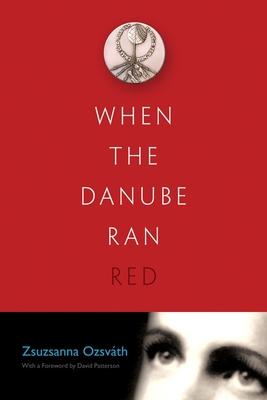Opening with the ominous scene of one young school girl whispering an urgent account of Nazi horror to another over birthday cake, Ozsvath's extraordinary and chilling memoir tells the story of her childhood in Hun-gary, living under the threat of the Holocaust. The setting is the summer of 1944 in Budapest during the time of the German occupation, when the Jews were confined to ghettos but not transported to Auschwitz in boxcars, as were the Hungarian Jewry living in the countryside. Provided with food and support by their former nanny, Erzsi, Ozsvath's family stays in a ghetto house where a group of children play theater, tell stories to one another, invent games to pass time, and wait for liberation.
In the fall of that year, however, things take a turn for the worse. Rounded up under horrific circumstances, and shot on the banks of the Danube by the thousands, the Jews of Budapest are threatened with immediate destruction. Ozsvath and her family survive because of Erzsi's courage and humanity. Cheating the watching eyes of the munderers, she brings them food and runs with them from house to house under heavy bombardment in the streets.
As a scholar, critic, and translator, Ozsvath has written extensively about Holocaust literature and the Holocaust in Hungary. Now, for the first time, she records her own history in this clear-eyed, moving account. When the Danube Ran Red combines an exceptional grounding in Hun-garian history with the pathos of a survivor, and the eloquence of a poet to present a truly singular work.

Opening with the ominous scene of one young school girl whispering an urgent account of Nazi horror to another over birthday cake, Ozsvath's extraordinary and chilling memoir tells the story of her childhood in Hun-gary, living under the threat of the Holocaust. The setting is the summer of 1944 in Budapest during the time of the German occupation, when the Jews were confined to ghettos but not transported to Auschwitz in boxcars, as were the Hungarian Jewry living in the countryside. Provided with food and support by their former nanny, Erzsi, Ozsvath's family stays in a ghetto house where a group of children play theater, tell stories to one another, invent games to pass time, and wait for liberation.
In the fall of that year, however, things take a turn for the worse. Rounded up under horrific circumstances, and shot on the banks of the Danube by the thousands, the Jews of Budapest are threatened with immediate destruction. Ozsvath and her family survive because of Erzsi's courage and humanity. Cheating the watching eyes of the munderers, she brings them food and runs with them from house to house under heavy bombardment in the streets.
As a scholar, critic, and translator, Ozsvath has written extensively about Holocaust literature and the Holocaust in Hungary. Now, for the first time, she records her own history in this clear-eyed, moving account. When the Danube Ran Red combines an exceptional grounding in Hun-garian history with the pathos of a survivor, and the eloquence of a poet to present a truly singular work.